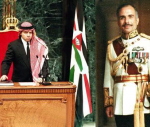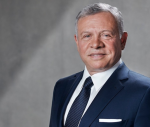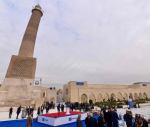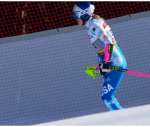You are here
1,000 leaders to convene at Dead Sea Saturday for WEF
By Mohammad Ghazal - Apr 03,2019 - Last updated at Apr 03,2019
AMMAN — More than 1,000 leaders of government, business, civil society, faith and academia from across the world will take part in the 17th World Economic Forum (WEF) on the Middle East and North Africa that will kick off on April 6th, shedding light on climate change, peace and reconciliation, youth unemployment and the fourth industrial revolution, among other topics.
The forum, which will run through April 7th, is the 10th WEF meeting to be held in Jordan and the 17th in the region and will witness the participation of a group from the top 100 Arab starts-ups in a special session to discuss the fourth industrial revolution.
Held in partnership with the King Abdullah II Fund for Development (KAFD) at the Dead Sea, the forum will be held under the theme “Building New Platforms of Cooperation”.
The event will focus on four transformational imperatives; shaping a new economic and social model for the region, environmental stewardship in the Arab world, finding common ground in a multiconceptual world and the fourth industrial revolution in the Arab world.
With the full support of Jordan and in the presence of Their Majesties King Abdullah and Queen Rania and HRH Crown Prince Hussein, the meeting will bring together leaders from Gulf Cooperation Council countries, the Levant and North Africa, as well as key international stakeholders from East Africa, Europe and the United States, according to a statement by the WEF e-mailed to The Jordan Times.
Entrepreneurial dialogue
For the second time, the WEF is partnering with the Bahrain Economic Development Board to bring 100 Arab start-ups to the meeting, under an initiative that aims to further integrate entrepreneurs into a national and regional dialogue on pressing challenges.
More than 400 applicants representing 17 countries and spanning numerous sectors including finance, energy, health, environment, media and education have applied to take part in the event, according to the statement.
Among the selected start-ups are Careem (UAE) — also included in the 2017 selection — which was recently sold for $3.1 billion; Coded (Kuwait), the first coding boot camps for the Arab world; Proximie (Lebanon), a company that uses augmented reality for surgeons to contribute remotely to clinical procedures; and Wahed (UAE), the world’s first halal investment platform.
They also include MonoJo (Jordan), a biotech company that uses camel milk to develop antibodies, and FalconViz, a company conducting a range of mapping, including that of cultural heritage sites, with autonomous drones.
Start-ups from Jordan taking part in the WEF also include Tarjama, which is specialised in providing a wide array of translation services and language solutions to global clients, with offices across the Middle East established in 2008.
Nestrom, another Jordanian start-up taking part in the meet, is an agra-tech company focused on delivering high-end, easy-to-deploy agricultural software products and solutions, according to the WEF website.
Jordanian start-ups also include Tamatem, the leading mobile games publisher in the Arabic-speaking market, and Whyise, which is an impact analytics software solution that allows organisations to aggregate their data and analyse it for exponential impact, as well as map their operations against international frameworks — such as the UN sustainable development goals — and comply with frameworks such as the International Finance Corporation’s ESG (environment, social and governance) standards and GRI (Global Reporting Initiative) among others.
Representing young people, the WEF’s “Global Shapers” (aged between 20 and 30) and “Young Global Leaders” (under the age of 40), will take part in the discussions. Social entrepreneurs will also contribute to the dialogue on innovative local and regional action to address pressing problems.
Agenda
“The region is at a pivotal time of taking the bold decisions necessary to future-proof its societies and economies,” Mirek Dusek, deputy head of Centre for Geopolitical and Regional Affairs and member of the executive committee at the WEF, was quoted as saying in the statement.
“At this meeting, we will hold several strategic dialogues, with particular attention on the relationship between the public, private and civic sectors, the impact of the fourth Industrial Revolution on kills and jobs, and new initiatives to help resolve long-standing conflicts,” Dusek noted.
Chairman of KAFD’s Board of Trustees Alaa Batayneh said that “having Jordan host the WEF on the Middle East and North Africa for the 10th time reaffirms the importance of Jordan’s political and economic position within the region”, according to the statement.
“The forum offers an international platform to highlight the priorities and plans of Jordan and the region, in the fields of development, energy, technology applications and natural resource management,” Batayneh added.
This year’s meeting is co-chaired by Khalid Al Rumaihi, chief executive of Bahrain’s Economic Development Board; Thani Ahmed Al Zeyoudi, UAE’s minister of climate change and environment; Rania A. Al Mashat, Egypt’s minister of tourism; Alain Bejjani, CEO of UAE-based Majid Al Futtaim Holding; Wafa Ben Hassine, MENA policy counsel at the US’ Access Now; Sumantra Chakrabarti, president of the European Bank for Reconstruction and Development; Tony F. Chan, president of Saudi King Abdullah University of Science and Technology; and Sigrid Kaag, minister for foreign trade and development cooperation of The Netherlands.
Among the public figures taking part in the meeting are UN Secretary General Antonio Guterres, President of Nigeria Muhammadu Buhari, Palestinian President Mahmoud Abbas, Armenian President Armen Sarkissian, Turkey’s First Lady Emine Erdogan, Afghanistan Chief Executive Abdullah Abdullah, Saudi Minister of Energy, Industry and Mineral Resources Khalid Al Falih, UAE Minister of State for Artificial Intelligence Omar Al Olama, Minister of Foreign Affairs of Oman Yusuf Bin Alawi Bin Abdullah, Lebanese Deputy Prime Minister Ghassan Hasbani and Bahraini Foreign Minister Khalid Bin Ahmed Al Khalifa.
The meeting will also focus on highlighting long-term approaches to responding to systemic issues, the statement said.
“The Humanitarian Investing Initiative, launched at the forum’s annual meeting in Davos, will showcase innovative approaches to investing that respond to the long-term challenges of protracted humanitarian crises. Taking this long-term approach, other sessions will feature solution-based, forward-looking dialogues on issues of healthcare, energy, water, gender equality, the future of jobs, cybersecurity and more,” the statement added.
Related Articles
AMMAN — Jordan will host over 1,000 government and business leaders for the World Economic Forum (WEF) on the Middle East and North Africa i
AMMAN — Jordan is hosting the 2019 World Economic Forum (WEF) on the Middle East and North Africa, which will be held at the Dead Sea on Apr
AMMAN — The intricate issues and challenges facing the Middle East and North Africa’s (MENA) population of more than 400 million people, ran















